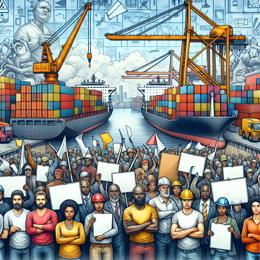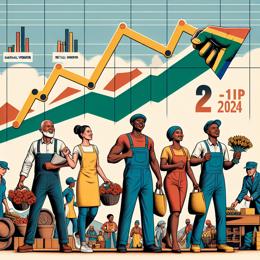Image created by AI
Labour Ministers of South Africa, Brazil, and Spain Address Global Labour Inequality
On the occasion of the G20 Labour Ministers' Meeting held in Fortaleza, a powerful tripartite alliance was forged as the Labour Ministers of South Africa, Brazil, and Spain collectively voiced their concerns regarding pervasive labour inequalities and the urgent need for effective solutions.
South Africa’s Nomakhosazana Meth, Brazil’s Luiz Marinho, and Spain’s Yolanda Díaz highlighted a troubling decline in labour share worldwide, particularly since the 1980s. They criticized traditional market-based solutions as being inadequate and called for a consensual and expansive social response.
The Ministers pointed towards the drawbacks of digital transitions favoring a minority, deregulation, and austerity as causes for the shrinking portion of national incomes that reach the workforce. This troubling trend has led to increasing precarious employment circumstances, stagnating wages, and rising economic disparities.
Brazil has witnessed modest productivity gains but at the cost of a contraction in real wages. South Africa’s labour market indicates that even as productivity increases, wages lag, exacerbating inequality. Spain, too, struggles with salaries failing to keep pace with corporate gains.
To address these deep-seated issues, the Ministers proposed a fourfold approach. It includes raising real wages, improving equality and diversity within the workplace, ensuring a just digital transition that maintains worker rights, and promoting robust collective bargaining processes.
Acknowledging the formidable challenges ahead, including the climate crisis, inequality, and the erosion of democracies, the Ministers announced their commitment to a permanent framework for collaboration aimed at ensuring labour rights are fortified, not eroded. This framework is to stand as a vanguard for a new global labour alliance committed to just distribution of economic wealth.
In conclusion, a resolute call was made for strategic cooperation to renew the commitment to labour rights, fair wages, and equal opportunities as the cornerstones of thriving economies and equitable societies globally.










